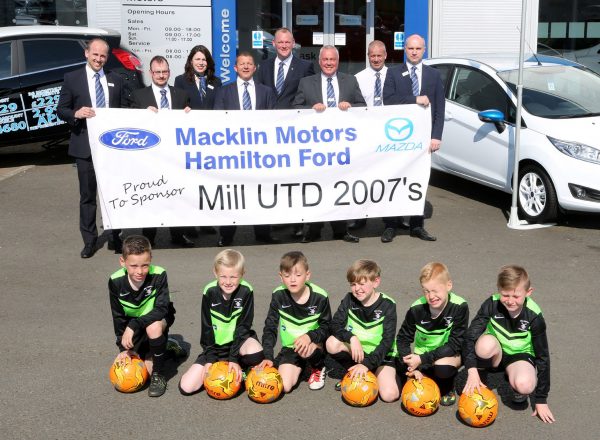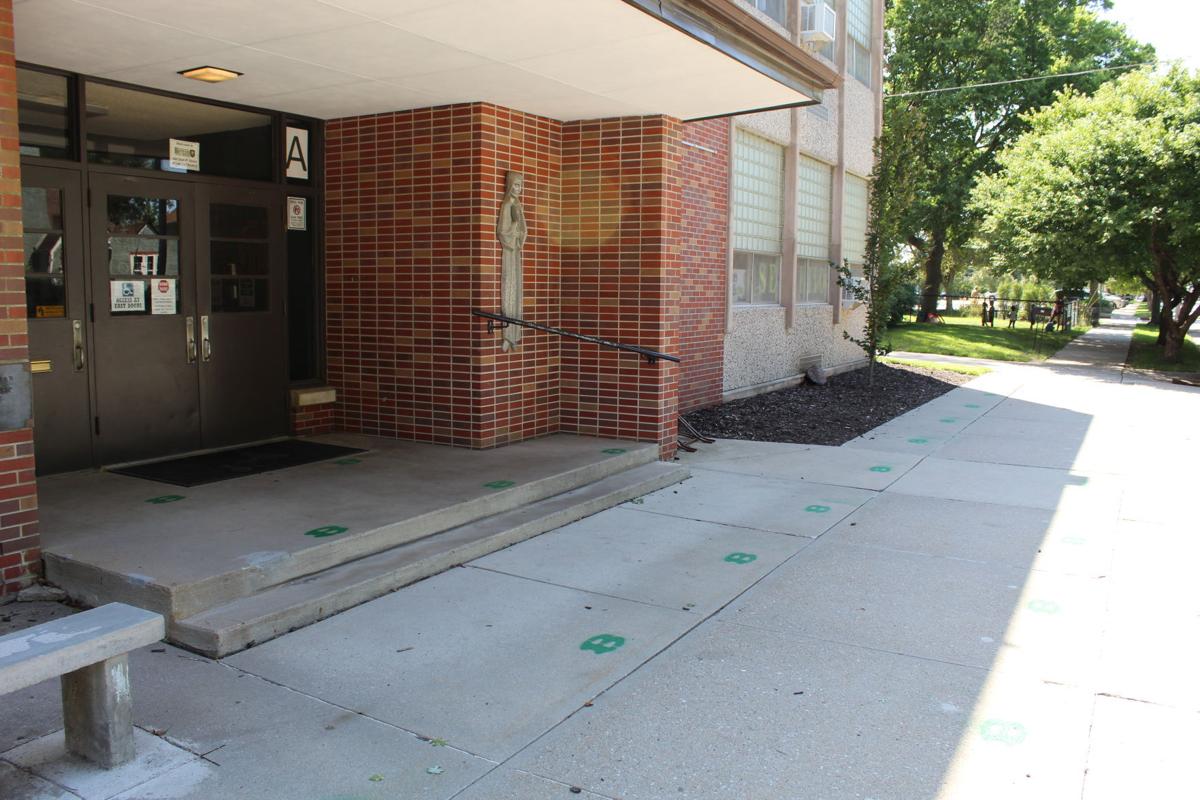EV Mandate Backlash: Car Dealerships Renew Resistance

Table of Contents
Financial Concerns and Infrastructure Challenges
Dealerships cite significant upfront investment costs associated with EV infrastructure as a primary reason for their resistance to EV mandates. The transition to EVs requires substantial financial commitment beyond simply stocking electric vehicles. This includes investing in charging stations, specialized tools for repair and maintenance, and comprehensive employee training programs.
- High cost of installing and maintaining fast-charging stations: The installation of Level 3 fast-charging stations, crucial for wider EV adoption, requires significant capital investment. Ongoing maintenance and potential upgrades further add to the financial burden.
- Need for specialized technicians trained in EV repair and maintenance: EVs have different mechanical components and repair procedures compared to gasoline-powered vehicles. Training existing mechanics and hiring new technicians with EV expertise is costly and time-consuming.
- Uncertainty about consumer demand and return on investment: Dealerships are hesitant to invest heavily in EV infrastructure without a guaranteed return. The current market uncertainty surrounding consumer demand for EVs creates considerable risk.
- Lack of government support for infrastructure development in less populated areas: The rollout of charging infrastructure is uneven, with many rural areas lacking sufficient charging stations. This makes it difficult for smaller dealerships in these regions to justify the investment.
The financial burden falls disproportionately on smaller dealerships, potentially leading to market consolidation and the disappearance of independent businesses. Government incentives and loan programs specifically designed to support dealership EV infrastructure upgrades are crucial to mitigate these challenges and ensure a fair transition for all stakeholders in the automotive industry. Without sufficient financial assistance, the EV mandate may inadvertently accelerate the consolidation of the car dealership market.
Consumer Demand and Market Readiness
Dealerships argue that current consumer demand for EVs does not justify the massive investment required for a full-scale transition. Several factors contribute to this perception:
- Limited range of EVs available to meet diverse consumer needs: The current EV market offers limited options in terms of vehicle types, price points, and features compared to gasoline-powered vehicles. This lack of choice can deter potential buyers.
- High purchase prices of EVs compared to gasoline-powered vehicles: Despite government incentives, the upfront cost of many EVs remains significantly higher than comparable gasoline-powered vehicles. This price difference is a major barrier for many consumers.
- Concerns about charging infrastructure availability and reliability: Range anxiety, or the fear of running out of charge, is a significant concern for potential EV buyers. Concerns about the reliability and availability of charging stations, especially during long journeys, persist.
- Consumer hesitancy due to lack of awareness and understanding about EVs: Many consumers remain hesitant about EVs due to a lack of information and understanding of their benefits and limitations.
Targeted consumer education and marketing campaigns are crucial to stimulate EV adoption. Highlighting the long-term cost savings, environmental benefits, and technological advancements of EVs can help address consumer concerns. Examining the successes and failures of similar EV adoption programs in other countries can provide valuable insights and inform strategies for the US market.
Training and Workforce Development
The shift to EVs necessitates specialized training for both sales staff and mechanics, presenting a significant cost and logistical challenge for dealerships.
- Need for specialized EV mechanic training programs: Training programs must be developed to equip mechanics with the skills to diagnose and repair EV components.
- Retraining existing staff to handle EV sales and service: Dealerships need to invest in retraining their existing staff to effectively sell and service EVs.
- Shortage of qualified EV technicians in the workforce: There is a growing shortage of qualified EV technicians, making it difficult for dealerships to find and retain skilled personnel.
- Cost of training programs and potential disruption to existing operations: The cost of training programs, coupled with the potential disruption to existing operations during the transition, adds to the challenges faced by dealerships.
Government initiatives and partnerships with educational institutions are essential to address the EV technician shortage. Investing in comprehensive training programs and creating incentives for individuals to enter the field will be crucial for a smooth transition to electric mobility. The long-term impact on employment within the automotive sector must be carefully considered, ensuring that the transition to EVs creates, rather than destroys, jobs.
The Political Landscape and Lobbying Efforts
Dealerships are actively engaging in lobbying efforts to influence EV mandate policies and regulations. Their actions reflect their concerns about the economic viability of transitioning to EVs.
- Pressure on lawmakers to ease or delay EV mandate implementation: Dealerships are lobbying for more time to adapt to the changing market and to avoid potentially damaging economic consequences.
- Lobbying for financial incentives to support infrastructure upgrades: They are advocating for increased government support to help offset the costs associated with EV infrastructure development.
- Advocating for policies that address consumer concerns: Dealerships are pushing for policies that address consumer anxieties about range, charging infrastructure, and the high initial cost of EVs.
- Highlighting the potential negative economic impact on dealerships and jobs: They are emphasizing the potential job losses and economic hardship that could result from a rushed transition to EVs.
Various automotive industry associations play a significant role in shaping the debate surrounding EV mandates. Their lobbying efforts influence policy decisions and shape the public narrative around the transition to electric mobility.
Conclusion
The backlash against EV mandates from car dealerships highlights significant challenges in the transition to electric vehicles. Addressing financial concerns, consumer anxieties, and workforce development needs is crucial for a successful and equitable transition. Government support and collaboration with dealerships are vital to overcome resistance and accelerate the adoption of electric vehicles. Understanding the nuances of the EV mandate backlash and finding solutions is paramount to ensuring a smooth transition to a cleaner, more sustainable transportation future. The conversation about effective EV mandate implementation must continue, addressing the concerns raised by dealerships to ensure a successful and widespread adoption of electric vehicles. Finding common ground between policymakers and dealerships is key to overcoming the EV mandate backlash and achieving the goals of a sustainable transportation future.

Featured Posts
-
 A 2000 Yankees Diary Examining Joe Torres Leadership And Andy Pettittes Shutout
Apr 28, 2025
A 2000 Yankees Diary Examining Joe Torres Leadership And Andy Pettittes Shutout
Apr 28, 2025 -
 Richard Jeffersons Espn Comments Le Bron James Reaction
Apr 28, 2025
Richard Jeffersons Espn Comments Le Bron James Reaction
Apr 28, 2025 -
 Michael Jordans Support For Denny Hamlin You Boo Him That Makes Him Better
Apr 28, 2025
Michael Jordans Support For Denny Hamlin You Boo Him That Makes Him Better
Apr 28, 2025 -
 Nba Analyst Dwyane Wade Highlights Doris Burkes Thunder Timberwolves Coverage
Apr 28, 2025
Nba Analyst Dwyane Wade Highlights Doris Burkes Thunder Timberwolves Coverage
Apr 28, 2025 -
 Shrtt Abwzby Qayd Eam Alshrtt Yhny Aleamlyn Wytfqd Syr Aleml
Apr 28, 2025
Shrtt Abwzby Qayd Eam Alshrtt Yhny Aleamlyn Wytfqd Syr Aleml
Apr 28, 2025
Latest Posts
-
 District Final Loss For Norfolk Catholic Against Archbishop Bergan
May 11, 2025
District Final Loss For Norfolk Catholic Against Archbishop Bergan
May 11, 2025 -
 Archbishop Bergan Defeats Norfolk Catholic In District Championship
May 11, 2025
Archbishop Bergan Defeats Norfolk Catholic In District Championship
May 11, 2025 -
 Boateng And Kruse Offer Contrasting Views On Herthas Poor Form
May 11, 2025
Boateng And Kruse Offer Contrasting Views On Herthas Poor Form
May 11, 2025 -
 Hertha Bscs Difficulties Boateng And Kruses Differing Perspectives
May 11, 2025
Hertha Bscs Difficulties Boateng And Kruses Differing Perspectives
May 11, 2025 -
 Santorini Quakes Current Trends And Future Predictions From Scientists
May 11, 2025
Santorini Quakes Current Trends And Future Predictions From Scientists
May 11, 2025
